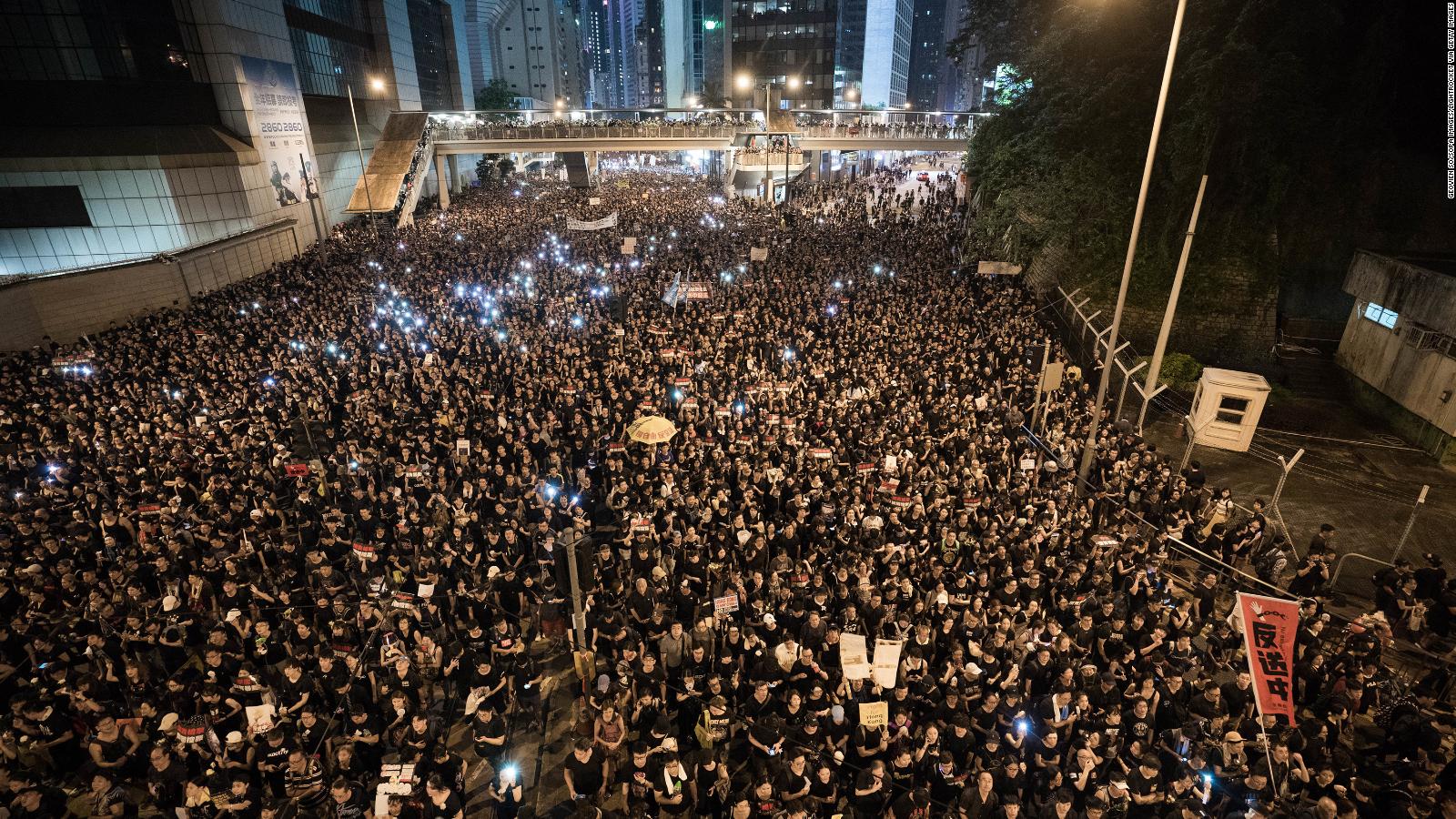
The West’s Undisguised Double Standards
This shows the rigid thinking of power politics common within the U.S. and the U.K., which is, "I can, but you can't. When I do this it's right, but when you do it it's wrong." Under this context, some U.K. and U.S. politicians state that when the Minnesota National Guard arrests demonstrators from the Black Lives Matter movement, it is restoration of social order, but when Hong Kong police arrest thugs who assaulted the legislative council last year, it is excessive use of enforcement.
Following that logic, some U.S. and U.K. politicians even assert that suspected murder of civilians in Afghanistan by the U.S. army should not be investigated by the International Criminal Court, but China carrying out vocational education and training of local populations in Xinjiang should be punished by American law. There's a long list of double standards like these.
Behind these double standards lies a pile of selfish and outdated doctrines. Chief among them are the remnants of colonialism. The U.K. has continuously promoted its strategy of exchanging sovereignty for administration in Hong Kong. Although the British government was unable to implement this strategy through its talks with China, in reality, it was not phased out following Hong Kong's return. The fact that many judges in Hong Kong's Court of Final Appeal and district courts are British citizens shows that the U.K. still influences Hong Kong public affairs, even after 1997. The former colonists won't allow the potential threat of the Hong Kong security law to affect their own vested interests.
Secondly, there is Western-centrism. This is a conceptualization used within power politics that originated in modern Europe, but has increasingly been centered within the United States. It is represented by a global geopolitical core-periphery structure, with the U.S. as its leader, and its allies, partners and other countries each assuming their respective roles within the system. This theory reveals a cruel reality. When a country or entity begins to trend away from a mid-to-low-range market toward a high-end market, such as Huawei, the U.S. often responds by stifling it without mercy. The U.S. and the U.K. view Hong Kong as an adjunct to this system and they won't allow their authority to be overstepped, no matter how urgent the need for the national security law is.
Then there is the weaponization of human rights. The U.S. first used this technique against the Soviet Union during the Cold War, under the name of human rights diplomacy. For several consecutive years, the U.S. has published country reports on human rights, criticizing the human rights conditions of other countries, and has even demanded that they achieve human rights objectives that the U.S. itself hasn't been able to fulfill. Meanwhile, the U.S. selectively ignores its own domestic issues, like extreme racism and inequality. The United States' current polarized political atmosphere further encourages this trend of weaponizing human rights in foreign relations, so the "humanitarianization" of the Hong Kong issue comes as no surprise.
Hong Kong is the place where the grand American strategy and East Asia meet. China's announcement of this Hong Kong national security law comes amid growing efforts by the U.S. to use Hong Kong to hold China in check following the trade war. China had no choice but to create the law; unrest has persisted since last year, and with no clear end in sight, China cannot bear the risk of continued unrest in Hong Kong. In this sense, China is making a defensive move, while the U.S. is on the offensive, forcing China's hand. You could say that the U.S. is cutting off its nose to spite its face.
The United States’ attempt to wage a Hong Kong campaign against China is the epitome of a negative-sum game. Following its long-winded plan for competing against China, the U.S. will continue to implement a cost-imposing strategy against China through Hong Kong, which means that both sides, and even other countries, will continue to suffer. The U.S. may believe that the situation is fully under its control, but this kind of blind confidence often keeps it from making a subjective, rational judgment of the situation. The international community needs the power of reason to play a larger role.
When the U.K. signed the Sino-British Joint Declaration, it shared a common understanding on Hong Kong with China. That is that China would once again exercise sovereignty over Hong Kong, while the U.K. could develop a friendly relationship with China, benefiting from the “one country two systems” framework. However, the 2019 Hong Kong protest movement has jeopardized the foundation of the “one country” system, damaging the trust built up between the U.K. and China since 1997. Whether intentionally or not, it is objectively clear that the U.K. has deviated from its established course, and it faces the risk of losing some of the benefits of long-term business interests in Hong Kong. The British government should reflect on how it can protect its interests in Hong Kong without being carried along by the circumstances.
There is some logic in allowing power politics to persist, but humanity shouldn't be blindly carried away by it. U.S. and U.K. interests in Hong Kong can be protected and developed only under the condition that they respect Chinese sovereignty and abide by Hong Kong's laws. Double standards will get them nowhere.
The citizens of Hong Kong, especially the younger generations, need to recognize and root out the outdated myths of power politics in their own thinking, and transform patriotism and love for Hong Kong into constructive action based on self-respect and self-confidence. Fanatically and violently pursuing "freedom" will only breed social tumors, and is useless for the governance of Hong Kong. In the end, Hong Kong's stability and prosperity should be built by the people of Hong Kong.
The author is a political commentator on international issues.

